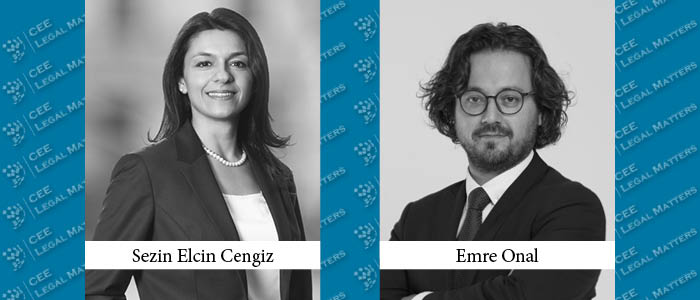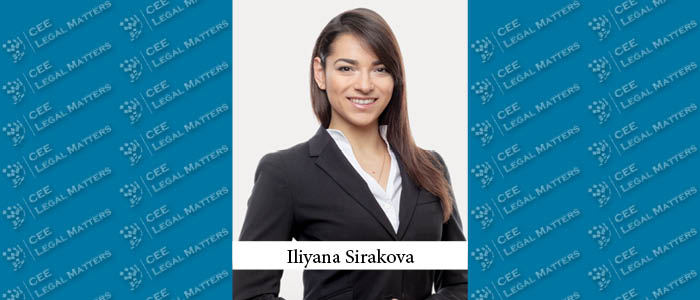The crypto-assets sector — which includes unbacked and asset-stabilised digital currencies, securities tokens, utility tokens, non- fungible tokens and services related to them — has potential benefits, but is turbulent. During 2022, it experienced valuation plunges, a stablecoin's collapse, the exchange FTX's bankruptcy and concerns about decentralised finance (DeFi) arrangements.
This heightened calls for regulation to maximise crypto's advantages while minimising financial crime and risks to investors and market integrity. The International Organisation of Securities Commissions (IOSCO) opened consultation on proposed recommendations for the regulation of crypto-assets in May 2023. Meanwhile, several countries have, or plan, rules affecting crypto-finance, but their approaches vary. Various EU directives concern crypto, so differences also arise when member states transpose them into national law.
The Markets in Crypto-Assets Regulation (MiCA), which introduces an EU regime for crypto-assets and related services, is expected to come into force in 2024. How national regulators use their powers under MiCA may produce differences between member states.
This article provides an outline of EU legislation followed by an overview of crypto-asset regulation in Poland by Jakub Pietrasik, head of the IT & TMT team, Zuzanna Nowak-Wrobel, IP and TMT team member, and Jan Gasiorowski, banking and finance team member, at Wolf Theiss.
Principal existing EU legislation:
Money Laundering Directives EU 2015/849 and EU 2018/843
The Fifth Money Laundering Directive (5MLD) extended the Fourth Money Laundering Directive (4MLD) regime to "providers engaged in exchange services between virtual and fiat currencies" and to "custodian wallet providers".
In July 2021, the European Commission proposed replacing 4MLD with a package of new anti-money laundering (AML) and counter financing of terrorism (CFT) rules. The package includes an AML/CFT regulation and a Sixth Money Laundering Directive (6MLD). It was still awaiting EU Parliamentary first reading on May 1, 2023.
Second Electronic Money Directive EU 2009/110 (EMD2)
Article 2(2) of EMD2 defines electronic money as "electronically, including magnetically, stored monetary value as represented by a claim on the issuer which is issued on receipt of funds for the purpose of making payment transactions … and which is accepted by a natural or legal person other than the electronic money issuer".
Some stablecoins can be "electronic money tokens" under this definition.
Revised Markets in Financial Instruments Directive EU 2014/65 (MiFID 2)
Some crypto-assets qualify as "financial instruments" under MiFID 2, art 4(1) point 15 and the associated list in section C of annex 1.
The MiCA regulation (COM 2020/593)
MiCA was approved by the European Parliament on April 20, 2023, and is expected to be published in the Official Journal in June, with some provisions on stablecoins taking effect in mid-2024 and others in early 2025. It will apply to persons engaged in the issuance or provision of services related to crypto-assets not within scope of existing EU regulation.
MiCA distinguishes between stablecoins and other crypto-assets. Stablecoins are divided into "asset-referenced tokens" and "electronic money tokens". Any that pass threshold conditions would be classified as "significant" by the European Banking Authority (EBA).
The proposed revised Transfer of Funds Regulation (TFR) COM (2021) 422
The European Parliament also voted in favour of the TFR on April 20, 2023 and it may take effect from 2024, like MiCA. It will recast current rules in regulation EU 2015/847.
TFR will harmonise rules in the EU by extending the "travel rule" applicable in traditional finance to crypto-assets. This means information on the source of an asset and its beneficial ownership will have to "travel" with a transaction and be stored on both sides of a transfer.
Crypto-asset regulation in Poland
1. Which body or bodies regulate crypto-assets and related services in Poland?
Generally, in Poland crypto-assets are not subject to any dedicated regulatory regime. Various types of crypto-related businesses are covered by general financial, investment or AML regulatory frameworks, but there is no specific unified act or code covering this area of business activity.
In practice, if a given crypto-asset or crypto-related activity falls within the range of a given regulated sphere, it would then fall under a corresponding regulation. For example, if a specific token could be qualified as a financial instrument, then it would be covered by legal requirements applicable to financial instrument trading and/or obligations relating to the publishing of a prospectus, etc.
On the other hand, activity related to virtual currency exchanges is covered by Polish AML legislation and requires prior registration in the register of activity related to virtual currencies.
The main regulatory authority involved in crypto-related activities is the Polish Financial Supervision Authority (PFSA). PFSA is a financial market regulator and it applies the general financial or investment regulatory regime.
Although the PFSA makes it clear that it is not the official regulatory body overseeing crypto-assets and does not provide licences, registrations, or supervision of cryptocurrency exchanges, it still has authority over certain crypto-related businesses through its general regulatory powers. As mentioned earlier, if a particular crypto-asset qualifies as an investment tool, the PFSA will exercise its powers and enforce specific requirements related to financial instruments and investment structures. If, however, an asset, such as an NFT used in video games or for artistic purposes, does not possess any investment characteristics, the PFSA will generally have no have jurisdiction over it.
While there is no legislation regarding crypto-assets, PFSA issues its soft law, i.e., guidelines and recommendations. The most recent PFSA publication on the issuance and trading of crypto-assets was published in December 2020. It sets out the PFSA's position regarding, for example, different types of tokens (currency tokens/exchange tokens, utility tokens, investment/security tokens) and their legal qualification in Poland from the perspective of the general Polish financial regulatory regime.
"Issuers of crypto-assets and entities intermediating in trading in crypto-assets should carefully analyse the current legal environment before commencing planned activities. This applies in particular to regulations of financial market law, which govern the raising of capital through the issue of a particular type of financial instrument or another instrument issuance of which is specifically regulated by law, and the rights arising from the crypto-asset are recorded in a token and correspond to the rights vested in such an instrument," the PFSA has said.
In addition to the points mentioned above, it is important to note that activities involving crypto-assets are of interest to tax authorities, as they may be subject to taxation in Poland. Furthermore, in terms of criminal liability, cryptocurrencies are closely monitored by the police and courts, particularly in relation to financial crimes committed within the crypto-market.
2. Has any regulator or finance ministry stated its attitude toward crypto-assets: for example, said it wants to encourage crypto ventures or warned the public against investing in them?
Polish regulatory bodies regularly monitor crypto-asset entities and take action against businesses promoting investment using tokens or other crypto-assets.
The Office of Competition and Consumer Protection (OCCP) has recently made statements regarding crypto assets. The OCCP has undertaken a review of crypto-asset exchange operators and has initiated proceedings against one entity. The proceedings were initiated due to false assurances made by the cryptocurrency exchange, claiming to have approval from the PFSA and promoting itself as a "Polish cryptocurrency exchange" on its website. These actions were deemed to be a breach of consumers' collective interests (see further here).
As mentioned under question 1, the PFSA does not have formal regulatory obligations to supervise crypto-assets or licence cryptocurrency exchanges. That said, the crypto-assets exchange operator that made false assurances about PFSA approval has been placed on the PFSA's warning list. These actions violated consumers' interests by misleading them about the nature of the products and services offered.
In a communication issued on June 10, 2022, the PFSA reminded the market that cryptocurrency business is very popular among individuals and companies covered by official political sanctions imposed as a result of the war in Ukraine. In the communication, the PFSA has expressed concern about the use of virtual currencies, particularly cryptocurrencies, as a means to potentially circumvent economic sanctions imposed on entities and individuals from Russia and Belarus due to the conflict in Ukraine.
To ensure the effective implementation of sanctions and maintain financial security, the PFSA urged supervised entities to exercise extreme caution when cooperating with virtual currency industry entities or other financial service providers associated with them. Rigorous monitoring of customer relationships and transactions, as well as careful consideration of any connections to Russia or Belarus, is essential, it said. The PFSA emphasised the need to adhere to regulatory provisions and make responsible decisions regarding cooperation to prevent the misuse of crypto-assets to bypass sanctions.
3. Does any non-EU derived law regulate crypto-assets or service providers such as exchanges or digital wallets?
Generally, no — there is no specific and non-EU-derived Polish law regulating crypto-assets or crypto-asset services.
The main regulation in Poland which applies specifically to crypto-business is the Act on Combating Money Laundering and the Financing of Terrorism (AML Act), which implements the Fifth Money Laundering Directive (5MLD) within the Polish legal system. The AML Act applies to entities carrying out business activities consisting of the provision of services relating to virtual currencies exchanges and digital wallets (for more details please see question 5 below).
Apart from the above, crypto-assets such as, for example, non-fungible tokens (NFTs) may involve Polish copyright law, especially when the NFT is minted as an artwork or other type of creative content. When dealing with crypto-assets like NFTs, therefore, it is crucial to define a given asset also from an intellectual property (IP) law perspective. It is also crucial to specify in the smart contract governing the given NFT whether it represents any real-life object such as, for example, a painting, or whether the purchase of the NFT is followed by a licence or an effective copyright transfer (which normally would require in Poland further legal actions to be fully effective — particularly an IP assignation agreement concluded in a written form).
It is also worth mentioning that the recent amendment to the Polish Commercial Companies Code offers a potential foundation for the "full tokenisation of securities" as outlined in the DeFi Report by FinTech Poland. This amendment allows for the maintenance of a shareholder register for joint-stock companies and simple joint-stock companies using a "distributed and decentralised database." This development indicates a possible future framework for implementing tokenised securities in Poland.
4. What rules apply to the promotion of crypto-assets, and are others proposed?
At the moment, promotion and advertising of crypto-assets is not precisely regulated in Poland. Crypto advertising should therefore be viewed primarily from the perspective of general principles of broader advertising law.
The main provisions in this respect can be divided into three categories:
• regulations concerning unfair advertising;
• regulations on restrictions on advertising of certain categories of products; and
• regulations concerning the place of advertisement publication.
Unfair advertising in the context of offering of crypto-assets and related services may take the following forms:
• advertising that is contrary to law or morality (e.g., advertisements that contain insulting or discriminatory language or sexual content; or advertising of goods or services using certain prohibited terms or names, such as "bank" where non-bank services are advertised);
• misleading advertisements (e.g., promising high returns from the investment);
• biased advertising (e.g., advertisements which induce fear, or exploit superstitions or the credulity of younger target groups);
• hidden advertising (which consists of smuggling specific brands of products or services into traditional publicity messages);
• disruptive, unsolicited advertising (which involves the excessive use of media, such as e-mail);
• comparative advertising (which consists of a comparative presentation of products/services aimed at discrediting the product/service of another entity or exploiting competitor's brand reputation).
With respect to content-based advertising restrictions; at present regulations apply only to the advertising of alcohol, tobacco, selected gambling games and medicines, and generally they do not involve crypto-assets.
Restrictions on advertising due to the place of its publication apply primarily to the press, radio and television (e.g., for product placement) and advertising in outdoor spaces (i.e., regulations on the location of outdoor advertising along roadways). Online advertising has not been regulated separately, hence in practice some attempts are made to apply the provisions on advertising in the press to online advertising.
Due to growing popularity of cryptocurrencies and interest among consumers, the topic of crypto advertising has caught the attention of the OCCP, as signalled above. The OCCP monitors online advertising materials related to "modern" forms of investment, including tokens and crypto-assets, and alternative investments such as commodities and precious metals. It frequently identifies irregularities that qualify as a violation of collective consumer interests.
In March 2022, the OCCP issued a recommendation regarding advertisements using images of famous people. The OCCP
broadly outlined the problem of advertisements encouraging investment in risky financial instruments based on cryptocurrencies using the image of celebrities to make the message credible.
As a result of such advertisements, the OCCP was approached by consumers who had lost money because they relied on the information presented in the advertisements. The OCCP's communication serves as a warning to consumers and is also a signal that the regulator will pay closer attention to phenomena related to crypto-assets.
In the past few months, the OCCP has been focusing on collaborations between influencers and companies that, inter alia, offer investment instruments. The OCCP has emphasised the importance of ensuring that individuals who promote specific projects, in exchange for compensation, clearly and unambiguously disclose such content to their audience. Inadequate labelling of posts and stories can be seen as misleading consumers about the nature of the content and the relationship between the influencer and the brand. Simply using hashtags such as #sponsored or #ad may be insufficient. Both the influencer and the client can still be held responsible. For instance, if a YouTuber promotes illegal financial products or instruments on their channel, they can be held liable both criminally and financially. The promotion of such investments has the potential to harm the collective interests of consumers.
This is particularly important as the OCCP is competent to take legal action against entrepreneurs violating collective consumers' interests. Unfair advertising resulting in misleading customers (consumers) could be qualified as actions infringing collective consumers' interests. Financial penalties for this type of conduct amount to up to 10% of the turnover achieved by the entrepreneur in the financial year preceding the year in which the penalty is imposed.
Furthermore, it is worth mentioning that despite the lack of state regulations, self-regulation can be observed among international online platforms providers (e.g., social media) offering their services in Poland — the terms of use of such platforms govern the advertising
of services related to offering of crypto-assets. Here, the most restrictive rules concern cryptocurrencies, including platforms for cryptocurrency trading and services or products that enable monetisation, resale or exchange of cryptocurrencies.
5. What anti-money laundering requirements apply to crypto-asset transactions or custody?
Under the Polish AML Act, an "activity related to virtual currencies" is a regulated activity and requires registration in the register of activity related to virtual currencies. The register is maintained by the Ministry of Finance, and conducting such activity without registration is sanctioned by a financial penalty up to the amount of PLN 100,000.00.
In addition, those providing business activities related to virtual currencies exchange are required to possess special qualifications and to have a clean criminal record, i.e.:
• with respect to natural persons: it is required that such a person has not been convicted of an intentional criminal offence against the activities of state institutions and local government, against the justice system, against the credibility of documents, against property, against economic trade and financial interests in civil law transactions, against trade in money and securities, the criminal offence of financing a terrorist, a criminal offence committed for financial or personal gain or an intentional fiscal offence; and
• with respect to legal persons or organisational units without legal personality: it is required that shareholders who are entrusted with the management of a company's affairs or authorised to represent the company or members of management bodies of the company have not been legally convicted of the offence as provided for natural persons or for an intentional fiscal offence.
The requirement to have a clean criminal record is applicable also to persons managing the performance of tasks relating to the pursuit of activities regarding virtual currencies and to the beneficial owner of the entity conducting such an activity.
Additionally, persons intending to provide such services are obliged to have appropriate knowledge of, and experience with, activities related to virtual currency exchange. This should be documented by the completion of a training program or a course covering legal or practical issues connected with such an activity or by documents confirming the undertaking of such activity for a period of at least a year.
The Polish AML Act obliges entities providing activities related to virtual currencies exchange to apply financial security measures in respect of their customers. In particular, the application of the financial security measures is obligatory once a business relationship is established, in case of conducting of an occasional transaction (under certain conditions specified further below) and every time when there is a suspicion of money laundering or terrorist financing.
The financial security measures which should be applied are, in particular:
• identification of the customer and verification of the customer's identity;
• identification of the beneficial owner and taking reasonable measures to verify that person's identity and to determine the ownership and control structure (in the case of a customer being a legal person, an organisational unit without legal personality or a trust);
• assessment and, as appropriate, obtaining information on the purpose and intended nature of the business relationship; and
• conducting ongoing monitoring of the business relationships of the customer.
Entities carrying out activity related to virtual currency exchange (as obliged institutions under the Polish AML Act) should identify the money laundering and terrorist financing risks involved in a business relationship or an occasional transaction and should assess the level of any risk identified. Both identification and assessment of the risk should be documented.
In identifying and assessing the risk, the following factors are considered:
• the type of customer;
• the geographic area;
• the purpose of the account;
• the type of products and services and the manner of their distribution;
• the level of assets to be deposited by the customer or the value of the transactions undertaken; and
• the purpose, regularity or duration of the business relationship.
In case of conducting of an occasional transaction involving the use of a virtual currency, the application of financial security measures is required when the virtual currency value is equal to or exceeds 1,000.00 euros.
6. Does any existing or proposed national law impose requirements regarding stablecoin?
There are as yet no national regulations in force or being drafted concerning stablecoins in Poland. As a result, the general regulatory regime applies — especially the Polish Act on Payment Services, according to which, when specific conditions are met, stablecoins may be qualified as electronic money — and the issuer of stablecoins falls under all the regulatory requirements relating to electronic money.
Regulators, including the PFSA, have indicated a need for legislation in the area of stablecoins, however. That said, as stablecoin activities will be regulated under the broader framework provided by MiCA, it is most likely that the main law requirements in Poland regarding stablecoins will result from MiCA regulation once it comes into force.
7. Do any other rules apply to banks holding or dealing in crypto, or to crypto derivatives?
Banks operating in Poland are subject to various legal acts and regulations. Some of the main legal acts applicable to banks in Poland include:
• Banking Law — the primary law governing the activities of banks in Poland, which sets out the legal framework for the establishment, operation and supervision of banks;
• Act on Payment Services — which regulates payment services provided by banks, including electronic payments, card payments and money transfers; and
• Securities Trading Act — this act regulates the trading of securities, including stocks, bonds and other financial instruments.
Moreover, banks are subject to the supervision and oversight of the PFSA when it comes to their activities involving crypto-assets. The PFSA carefully monitors the banks' compliance with the applicable laws and regulations and can impose sanctions if they fail to comply.
Apart from the above, Poland shall transpose into its legislation by the January 1, 2025 deadline the new guidelines for banks holding crypto-assets — the Basel III framework announced by the Basel Committee on Banking Supervision. Under the new guidelines, banks will be required to allocate 1,250% risk weight to crypto-assets that are not backed by fiat currency or gold, and to have capital reserves equal to the value of crypto-assets they hold.
8. Do any existing or proposed rules apply to decentralised finance (DeFi) arrangements?
In Poland, there are as yet no specific regulations that directly address decentralised finance or DeFi arrangements. It is, however, important to acknowledge that the regulatory landscape is continually evolving, and there are some guidelines that have led to certain interpretations enabling the application of existing regulations.
The main concept used in Polish legislation with respect to DeFi is the notion of virtual currency, as defined in the AML Act. According to this definition, a digital representation can be recognised as a virtual currency if it meets certain criteria, such as being exchangeable for legal tender, accepted as a means of exchange, electronically storable, transferrable, or subject to electronic trade. The definition does not specify a particular distributed ledger technology or architectural solution. A decentralised financial product will therefore
be classified as a virtual currency if it meets the criteria and does not qualify as a known standard financial product, such as traditional financial instruments like stocks or bonds. Bitcoin serves as a prominent example of a virtual currency based on previous interpretations.
To ensure consistency in AML obligations, institutions offering or issuing decentralised financial products are subject to AML obligations similar to those imposed on institutions dealing with traditional financial products. These obligations encompass the exchange between virtual currencies and payment instruments, the intermediation in such exchanges, and the operation of virtual currency accounts.
In addition to the above, it is worth noting the position of the PFSA, which highlights that DeFi carries significant financial and technological risks. These risks primarily arise from the potential circumvention of regulations designed to restrict certain activities in the financial market (such as blocking or seizing funds in an account or financing criminal activities).
Additionally, the PFSA emphasises that the DeFi market is increasingly susceptible to various types of fraud.
By Jakub Pietrasik, Counsel, Zuzanna Nowak-Wrobel and Jan Gasiorowski, Associates, Wolf Theiss


























